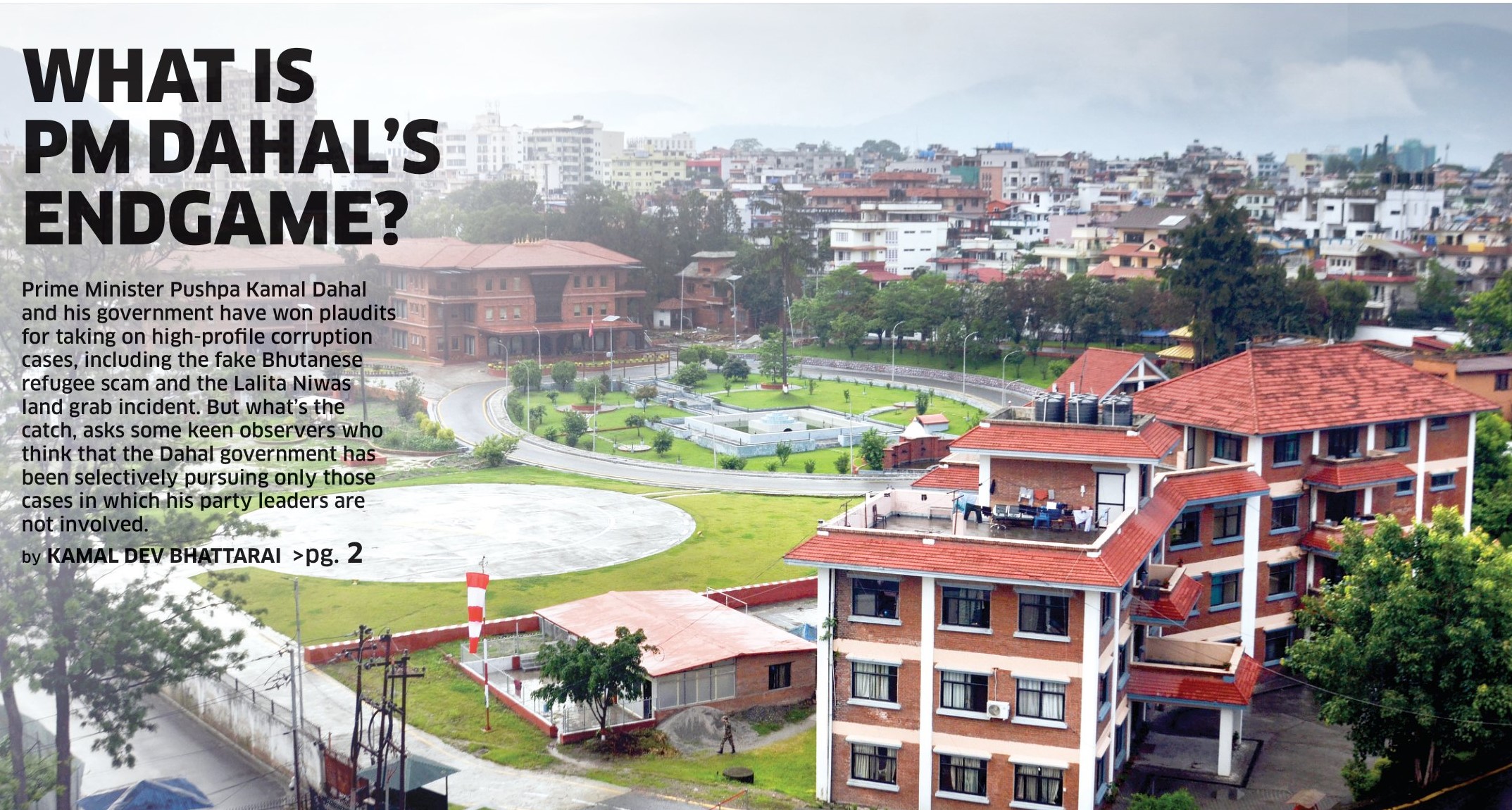If nothing else, the Pushpa Kamal Dahal government has won acclaim for its anti-corruption stance. It started with the fake Bhutanese refugee scandal, in which several high-profile politicians, their relatives and government officials have been arrested. Balkrishna Khand of Nepali Congress and Top Bahadur Rayamajhi of CPN-UML are among the well-known figures who have been jailed for their alleged involvement in the case. Senior politicians, government ministers and top bureaucrats getting arrested, let alone investigated for any wrongdoing was unheard of in Nepal. Next came the reopening of the Lalita Niwas land grab case, in which a large government-owned land, just next to the Prime Minister’s official residence, was transferred and transacted as private plots with the involvement of former government ministers, bureaucrats and businesspersons. The Central Investigation Bureau (CIB) of Nepal Police has already arrested several individuals including Min Bahadur Gurung, the owner of Bhatbhateni supermarket chain, for land misappropriation. The CIB action move follows the green signal from Prime Minister Dahal, who has hinted that his government would indiscriminately crack down on corruption cases, no matter who is involved. There are many corruption cases, mainly after 1990, on which there has not been any investigation. The probe into Bhutanese refugee scandal and the arrest of senior politicians and top bureaucrats give the impression that Dahal really means business. But some observers say while the Dahal government has taken a praiseworthy step to probe and prosecute corruption cases, one cannot help but suspect his intention. In the fake refugee scandal and the Lalita Niwas land grab incident, most of the accused who have been arrested or are under investigation are not directly linked to his party. Is Prime Minister Dahal serious about stamping out corruption, or just employing vindictive politics for his political gain? Observers say while Dahal might be the prime minister, the fact remains that his party is the third largest party in Parliament, and he needs a bargain chip in order to secure his post. In the Lalita Niwas land grab incident, names of two former prime ministers Madhav Kumar Nepal and Baburam Bhattarai have been linked. Nepal’s party, CPN (Unified Socialist), is a partner in the current ruling coalition, while Bhattarai is a former Maoist party leader. As the CIB pursues its investigation, there is a chance that several other big leaders could be arrested. Senior journalist Hari Bahadur Thapa says while it is a good beginning that the government is finally serious about taming corruption and investigating old cases that were mothballed with consensus among major political parties, it is yet to be seen how these cases will conclude. True, the anti-corruption campaign of the Dahal government has been lauded by the media and general public, but the move has also rattled the major political parties like the NC and UML. It could easily upset the current political power sharing deal. The Rastriya Swatantra Party, which is poised to become a major political force in the future, and the Rastriya Prajatantra Party, which is undergoing something of a revival, are the only parties that have clearly supported the government’s position on corruption. One could argue that Prime Minister Dahal and his party is trying to appeal to the RSP and RPP supporters in view of the next general elections. Thapa says rather than offering immature praise to Prime Minister Dahal and his government, it will do well to look at the current development with a critical lens. He says the general public must be cautious, as Dahal could weaponize the high-profile corruption scandals for his own political advantage. It is crucial that the media and civil society continue to exert pressure on the government to conclude its investigations into all corruption cases, without fear or favor. Thapa says it is worthwhile to remember that there are corruption cases related to the Maoist party as well, including the one related to the People’s Liberation Army cantonment. So far, there has been no investigation into those cases. Khem Raj Nepal, former government secretary, says the support and appreciation that the Dahal government has won with the investigation of fake refugee scam may have prompted the government to look into more cases related to corruption. He is of the view that even if Prime Minister Dahal intends to take a political benefit by investigating corruption cases involving high-profile individuals not associated with his party, it will no doubt help the country by discouraging corruption. At this moment, everything hinges upon Prime Minister Dahal. He must prove that he is a man of his word.










